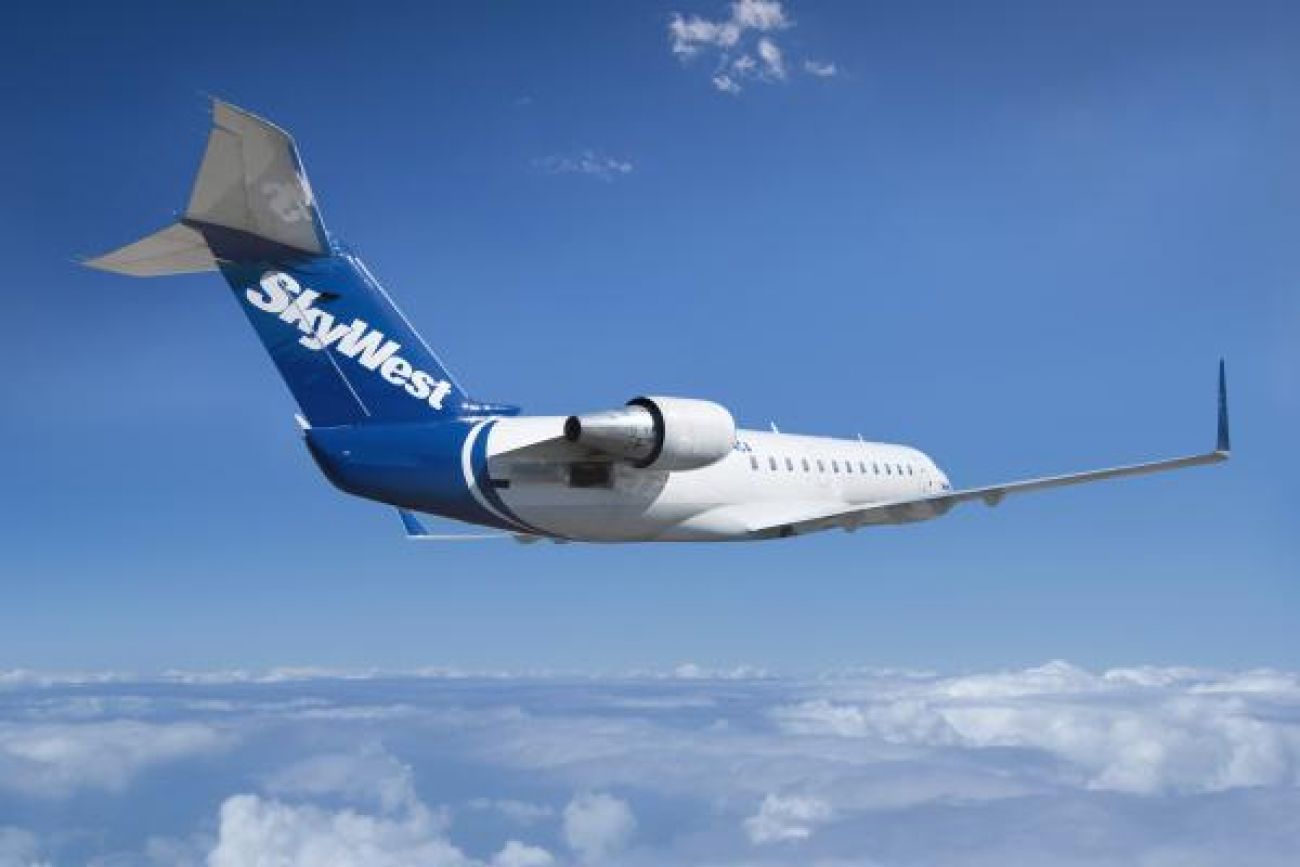Small planes may save Muskegon airport as carrier exits. Houghton skeptical.

- Houghton and Muskegon counties are losing their only passenger carrier as soon as a replacement is found.
- The answer may be smaller, 9-seat planes. Muskegon is on board with change, but Houghton says no.
- The U.S. is short about 12,000 pilots, prompting regional carriers to consolidate and cut flights.
Travelers between Muskegon and Chicago may soon see big changes, as airlines continue to juggle schedules amid a severe national pilot shortage as summer travel rebounds.
Facing the loss of a carrier, the Muskegon County Airport may cut commercial service from two trips a day to one on Sept. 1, or add several flights daily from a new airline — but with nine-seat planes, not 50-seat jets.
A decision could come from federal officials by month’s end, spelling at least some relief to the airport where passenger counts have declined 43 percent to just over 5,000 at mid-year at a time when other small airlines are setting travel records.
Related:
- Rural Michigan fears airline route changes will be ‘disastrous’
- Delta launches high-tech screen at Detroit Metro with personal flight data
More flights over a range of times “will be a real benefit for the community, especially the business community,” Bob Lukens, community service director for Muskegon County, told Bridge Michigan.
The changes in Muskegon are another sign of upheaval facing the state’s smallest airports as they brace for route shifts that could impact everything from passenger access to federal funding.
SkyWest — operating under contract to United Airlines and Delta in Michigan — is consolidating routes, shifting flight times or dropping flights across northern Michigan and the Upper Peninsula.
Airports in Alpena, Sault Ste. Marie, Escanaba, Iron Mountain and Pellston are likely to be affected by plans to end direct flights to Detroit or Minneapolis by mid-September and replace them with a bus-like route that would start at one hub and make several stops along the way.
The moves come as “we work through a crew imbalance that is affecting the aviation industry,” SkyWest told Bridge in an email.
The carrier notified airport officials this spring that it intended to halt service altogether at Muskegon County, Houghton County and 27 regional airports nationwide.
All are designated by federal authorities as Essential Air Service airports, which receive from $2 million to $5 million in subsidies to operate flights in places where such service otherwise wouldn't be profitable.
The U.S. Department of Transportation halted the SkyWest’s plans, however, ruling that service had to continue until replacements were found.
In Houghton County, the board of commissioners voted in June to hold SkyWest to its contract, which ends in January, and keep its two direct flights per day.
Only one carrier last spring bid to replace SkyWest, which operates from the Houghton County Memorial Airport in Hancock as United, and the county said it didn’t want 9-seat airline service.
But that’s what is in line for the Muskegon airport, based on a proposal from Southern Airways Express, which hopes to replace SkyWest.
The county supports the move.
Muskegon “sees real value” to the proposal from Southern Airways Express, Robert Scolnik, chair of the county’s board of commissioners, told the Department of Transportation in a letter on June 3.
That value comes from “the proposed substantial increase to flight frequencies,” he wrote, since that will allow customers more access to flights from Chicago to other U.S. or international destinations.
A deal with Southern Airways also would help the Muskegon airport retain its essential air subsidy, valued at $3.1 million under the SkyWest contract for two flights per day. That amount would reach up to $4.2 million at the end of a four-year contract with South Express, according to its proposal.
The airport grappled with losses from the flight slowdown during the pandemic, but traffic remains slower as the flights are cut back. As a result, it’s anticipating less revenue from handling fewer flights during the SkyWest transition.
Muskegon County’s budget estimates the airport will lose $600,000 this year, as revenues decline to $2.6 million from $3.3 million because of decreases in landing fees, terminal rental fees and customer spending.
Last year, it lost about $33,000.
Beyond the immediate concern about replacing SkyWest, Muskegon County officials also have been watching the nearby Gerald R. Ford International Airport in Grand Rapids grow to nearly 2 million annual passengers, a number that could bump it out of contention for subsidies.
For an airport that Lukens said once had 100,000 passengers per year and three airlines, losing federal subsidies would dramatically hurt the facility and region.
In 2008, a study by the Muskegon Lakeshore Chamber of Commerce found that the airport generated $77 million (in today’s dollars) in economic impact to the region.
The expanded flight schedule on smaller planes could offer an opportunity to build business and possibly even attract new carriers that operate small planes to the facility.
“As a new service comes, we’re confident we can maintain and increase that,” Lukens said. “We’re hoping the new service will be accepted and used by the community.”
Some, however, have expressed skepticism, including two people who wrote letters to the federal officials raising concerns about the size of the planes.
If the federal officials accept the Southern Airways proposal, Muskegon would be the first Midwest city added to its schedule and its only service into Chicago. The Florida-based airline founded in 2013 recently doubled its fleet and announced a merger with a California carrier, according to a report on Airline Geeks.
The airline did not respond to Bridge’s request for more information. However, it said it is able to service the smaller flights amid the pilot shortage because those pilots require less training.
In Houghton County, the community expects federal authorities to request another round of bids in September to replace SkyWest.
At the same time, state economic developers are watching the situations closely.
Marty Fittante, CEO of InvestUP economic development group based in Marquette, told Bridge last week that travelers to airports across the Upper Peninsula will face extreme challenges from reduced flights and seat availability.
Business travelers in particular could end up seeing a one-day trip turned into three days, with expenses added from hotel stays, based on the latest proposals — a situation that he said could constrict business attraction in a region already struggling with population and job loss.
“You really lose the better part of the day,” he said. “... So it's become really worrisome and frankly, frustrating.
Business Watch
Covering the intersection of business and policy, and informing Michigan employers and workers on the long road back from coronavirus.
- About Business Watch
- Subscribe
- Share tips and questions with Bridge Business Editor Paula Gardner
Thanks to our Business Watch sponsors.
Support Bridge's nonprofit civic journalism. Donate today.
See what new members are saying about why they donated to Bridge Michigan:
- “In order for this information to be accurate and unbiased it must be underwritten by its readers, not by special interests.” - Larry S.
- “Not many other media sources report on the topics Bridge does.” - Susan B.
- “Your journalism is outstanding and rare these days.” - Mark S.
If you want to ensure the future of nonpartisan, nonprofit Michigan journalism, please become a member today. You, too, will be asked why you donated and maybe we'll feature your quote next time!




